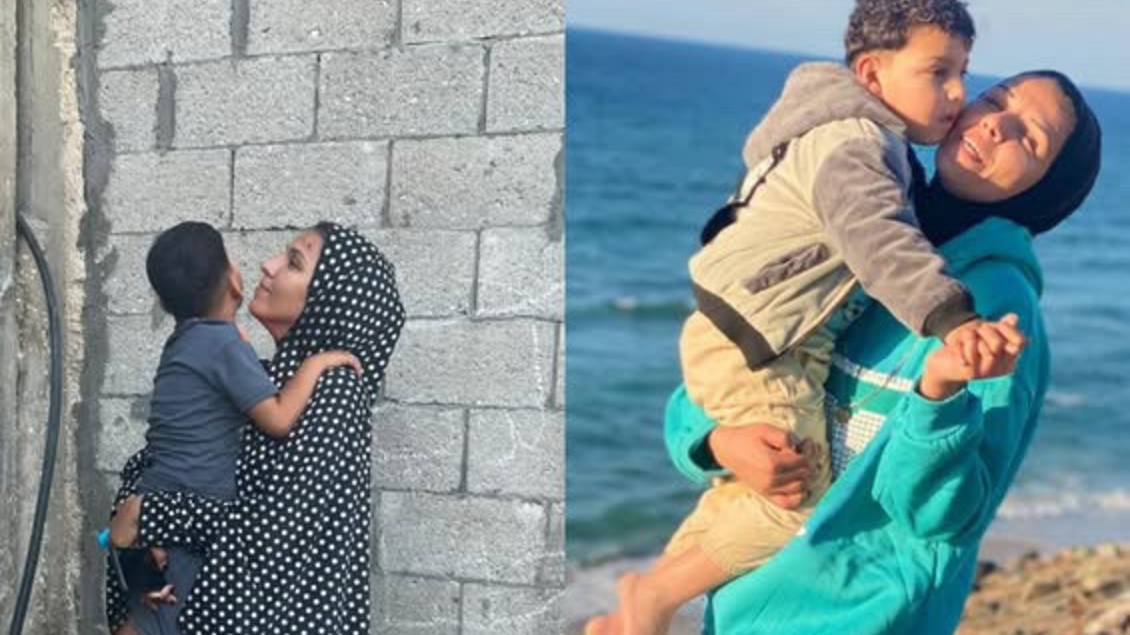Help an LGBTQ+ Refugee Reach Safety in Canada
Toronto, Ontario, Canada
Siavash (not his real name) is an LGBTQ+ Iranian musician in his thirties. As he so poignantly says,
Siavash came into conflict with the Iranian regime on more than one occasion, both as a musician and as a gay man.
Siavash began singing when he was 16. At the age of 20 he learned the guitar and began writing poetry and song lyrics, some of which he sold to other Iranian musicians. Following university, Siavash formed a band that gained popularity in Iran. One of the band’s videos spent several months on Iran’s satellite network top-20 charts. Although music has been banned on TV and radio since the Iranian revolution in 1979, it has not stopped Iranian artists like Siavash from working underground to produce music and promote human rights. This defiance comes at a cost, though, and Iranian musicians are frequently jailed for blasphemy.
When authorities discovered the video they detained and interrogated Siavash and took his national identity documents. They believed that his songs were threatening to the regime and told Siavash he would face further punishment unless he quit making music. Siavash had no choice but to sign a document stating he would no longer perform as a musician, and since that time he has only performed for his close friends.
Siavash knew that there was something besides his music that could cause significant problems for him. The thing that worried him most was being outed as a gay man. Siavash’s first love was a boy in middle school, but as he says, “I could only marry him in my thoughts. He never knew I was in love with him.” Siavash could not be open about who he was with anyone, not even his closest friends or family. When he was an adult, Siavash met his first boyfriend and fell in love. When they were together there were always fears that someone might see them and suspect they were gay. In 2019, neighbours reported Siavash and his boyfriend for suspected immorality and they were called into the police station and interrogated, their IDs and passports confiscated. After his arrest, Siavash was fired from his job; his managers suspected he was gay.
In 2020, Siavash went to his boyfriend’s apartment to surprise him with a birthday cake. He stood at the door, lit the candles on the cake, and when his boyfriend opened the door they shared a kiss. They didn’t realize that some neighbours in the building were watching them. Soon Siavash and his boyfriend heard suspicious noises and then sounds of someone trying to break down the door. Siavash and his boyfriend fled out the back window of the apartment and went into hiding separately. A few days later Siavash’s friend called him. He said, “Don’t ever come back to this building because the neighbours are planning to have you arrested.” And Siavash’s boyfriend confirmed that the neighbours signed a document attesting that Siavash and his boyfriend were gay.
Siavash went into hiding, afraid to go outside or contact friends. He panicked that relatives or neighbours might turn him into the police for “misconduct” or “perversion”. He was right to be concerned. Homosexuality is illegal in Iran, which is considered one of the most repressive countries in the world for LGBTQ+ people. Those convicted of “sodomy” can be executed, as were two men who were hanged in Tehran In February 2022. Even men who are seen kissing or holding hands can face public lashings, torture and even rape carried out by government officials. Honor killings of young LGBTQ persons are also carried out, most recently 20-year old Alireza Fazeli Monfared, who was about to flee Iran for Turkey, but was murdered by his family members.
After going into hiding, Siavash realized he could no longer remain in Iran; he had to get out as quickly as possible. He bought a return ticket to Armenia, so that he wouldn’t raise the suspicions of the Iranian officials, and boarded a flight to Yerevan, the capital city. At every point he expected to be stopped, but believed it was worth risking death to live in freedom as his open and true self. After arriving safely in Armenia, Siava
-
$18,000.00
Funding Goal -
$0.00
Funds Raised -
0
Days to go -
Campaign Never Ends
Campaign End Method
Product Description
Toronto, Ontario, Canada
Siavash (not his real name) is an LGBTQ+ Iranian musician in his thirties. As he so poignantly says,
Siavash came into conflict with the Iranian regime on more than one occasion, both as a musician and as a gay man.
Siavash began singing when he was 16. At the age of 20 he learned the guitar and began writing poetry and song lyrics, some of which he sold to other Iranian musicians. Following university, Siavash formed a band that gained popularity in Iran. One of the band’s videos spent several months on Iran’s satellite network top-20 charts. Although music has been banned on TV and radio since the Iranian revolution in 1979, it has not stopped Iranian artists like Siavash from working underground to produce music and promote human rights. This defiance comes at a cost, though, and Iranian musicians are frequently jailed for blasphemy.
When authorities discovered the video they detained and interrogated Siavash and took his national identity documents. They believed that his songs were threatening to the regime and told Siavash he would face further punishment unless he quit making music. Siavash had no choice but to sign a document stating he would no longer perform as a musician, and since that time he has only performed for his close friends.
Siavash knew that there was something besides his music that could cause significant problems for him. The thing that worried him most was being outed as a gay man. Siavash’s first love was a boy in middle school, but as he says, “I could only marry him in my thoughts. He never knew I was in love with him.” Siavash could not be open about who he was with anyone, not even his closest friends or family. When he was an adult, Siavash met his first boyfriend and fell in love. When they were together there were always fears that someone might see them and suspect they were gay. In 2019, neighbours reported Siavash and his boyfriend for suspected immorality and they were called into the police station and interrogated, their IDs and passports confiscated. After his arrest, Siavash was fired from his job; his managers suspected he was gay.
In 2020, Siavash went to his boyfriend’s apartment to surprise him with a birthday cake. He stood at the door, lit the candles on the cake, and when his boyfriend opened the door they shared a kiss. They didn’t realize that some neighbours in the building were watching them. Soon Siavash and his boyfriend heard suspicious noises and then sounds of someone trying to break down the door. Siavash and his boyfriend fled out the back window of the apartment and went into hiding separately. A few days later Siavash’s friend called him. He said, “Don’t ever come back to this building because the neighbours are planning to have you arrested.” And Siavash’s boyfriend confirmed that the neighbours signed a document attesting that Siavash and his boyfriend were gay.
Siavash went into hiding, afraid to go outside or contact friends. He panicked that relatives or neighbours might turn him into the police for “misconduct” or “perversion”. He was right to be concerned. Homosexuality is illegal in Iran, which is considered one of the most repressive countries in the world for LGBTQ+ people. Those convicted of “sodomy” can be executed, as were two men who were hanged in Tehran In February 2022. Even men who are seen kissing or holding hands can face public lashings, torture and even rape carried out by government officials. Honor killings of young LGBTQ persons are also carried out, most recently 20-year old Alireza Fazeli Monfared, who was about to flee Iran for Turkey, but was murdered by his family members.
After going into hiding, Siavash realized he could no longer remain in Iran; he had to get out as quickly as possible. He bought a return ticket to Armenia, so that he wouldn’t raise the suspicions of the Iranian officials, and boarded a flight to Yerevan, the capital city. At every point he expected to be stopped, but believed it was worth risking death to live in freedom as his open and true self. After arriving safely in Armenia, Siava
| ID | Name | Amount | |
|---|---|---|---|
| 1244 | Listing Agent | [email protected] | |
| 1215 | Listing Agent | [email protected] |







